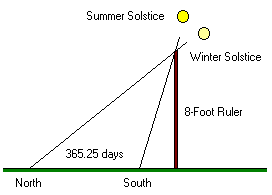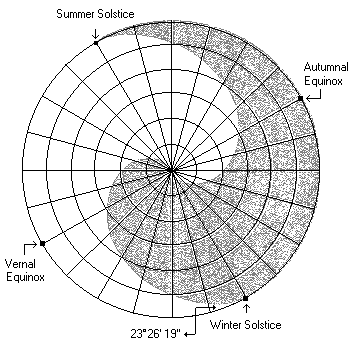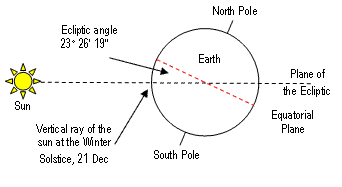العقل والنقل بين الشريعة والفلسفة
Posted by Ali Reda | Posted in | Posted on 11/27/2013
تتحدد الصورة العامة لإشكالية التعارض في عبارة الرازي:
إذا تعارضت الأدلة السمعية والعقلية، أو السمع والعقل، أو النقل والعقل، أو الظواهر النقلية والقواطع العقلية، أو نحو ذلك من العبارات، فإما أن يُجمع بينهما، وهو محال، لأنه جمع بين النقيضين، وإما أن يردا جميعاً، وإما أن يقدم السمع، وهو محال، لأن العقل أصل النقل فلو قدمناه عليه كان ذلك قدحاً في العقل الذي هو أصل النقل، والقدح في أصل الشيء قدح فيه، فكان تقديم النقل قدحاً في النقل والعقل جميعاً، فوجب تقديم العقل. ثم النقل إما أن يُتأول وإما أن يفوض وأما إذا تعارضا تعارض الضدين امتنع الجمع بينهما ولم يمتنع ارتفاعهما
فالرازي لا يشكك في كون الوحي مصدراً معرفياً، بل
ينطلق من النص القرآني في تحديد التصور الكلي للوجود، كما فعل في كتابه أساس
التقديس. لكنه يدعو إلى تأويل نصوص الكتاب إذا استحال حمل معناها على ظاهرها، وإلى
رد أخبار الآحاد عند تعارضها مع أحكام العقل القطعية. لذلك نجد
الرازي يحمل بشدة على
المحدِّثين الذين ينهون عن اعتماد "العقل" لتأويل متشابه الكتاب،
اعتقاداً منهم أن إعمال العقل في النص يؤدي إلى تفسير القرآن الكريم وفق فهوم
بشرية ظنية محدودة، بينما تجدهم يلجؤون إلى أحاديث آحاد مظنونة تعطي تفسيرات
تتصادم مع نصوص القرآن القطعية:
والعجب من الحشوية أنهم يقولون: الاشتغال بتأويل الآيات المتشابهة غير جائز، لأن تعيين ذلك التأويل مظنون. والقول بالظن في القرآن لا يجوز. ثم إنهم يتكلمون في ذات الله تعالى وصفاته بأخبار الآحاد، مع أنها في غاية البعد عن القطع واليقين. إذا لم يجوّزا تفسير ألفاظ القرآن بالطريق المظنون، فلأن يمتنعوا عن الكلام في ذات الحق تعالى وفي صفاته بمجرد الروايات الضعيفة أولى
يحدد ابن تيمية موقفه من إشكالية التعارض بأن مرجعية
العقل في إثبات صدق الوحي والنبوة، ولكنه ينـزع منه الحق في مخالفة المنقول الذي
يستمد مصداقيته من الوحي والنبوة، فالعقل كما يرى ابن تيمية
متولٍّ وليّ الرسول ثم عزل نفسه، لأن العقل دل على أن الرسول يجب تصديقه فيما أخبر، وطاعته فيما أمر
وبالدعوة
إلى تقديم النقل على العقل حال تعارضهما، فيقول:
إذا تعارض الشرع والعقل وجب تقديم الشرع، لأن العقل مصدق للشرع في كل ما أخبر به، والشرع لم يصدق العقل في كل ما أخبره به
لذلك نرى ابن تيمية يشدد على رفض تحكيم العقلي في المنقول الظني، فيقول في
معرض الرد على من يدعو إلى استبعاد الخبر لضعف إسناده أو اضطراب متنه:
فإن قالوا إنما أردنا معارضة ما يظن أنه دليل وليس بدليل أصلاً، أو يكون دليلاً ظنياً لتطرق الظن إلى بعض مقدماته، إما في الإسناد وإما في المتن، كإمكان كذب المخبر أو غلطه، وكإمكان احتمال اللفظ لمعنيين فصاعداً، قيل إذا فسرتم الدليل السمعي بما ليس بدليل في نفس الأمر، بل اعتقاد دلالته جهل، أو بما يظن أنه دليل وليس بدليل، أمكن أن يفسر الدليل العقلي المعارض للشرع بما ليس بدليل في نفس الأمر، بل اعتقاد دلالته جهل، أو يظن أنه دليل وليس بدليل
لنضرب مثالا بقضية الاستواء فمفهوم أهل السنة والاجتماع فى تلك القضية يتمثل فى مقولة الامام مالك
فى وجوب التسليم والتفويض لله بالفهم. وهذا ما يفعله الراسخون بالعلم وفقا للاية ويلتزم الشيخ محمد عبده بهذا المبدأ عند الحديث عن ذات الله وهذا أقرب موقف فى قضية التأويل لفيتجنشتاين حيث ان ما لا تعرف كنهه جيدا ولا تفكر فيه بوضوح لابد وان تصمت فى الحديث عنه.
أخبرنا أبو بكر أحمد بن محمد بن الحارث الفقيه الأصفهاني ، أنا أبو محمد عبد الله بن محمد بن جعفر بن حيان المعروف بأبي الشيخ ، ثنا أبو جعفر أحمد بن زيرك اليزدي ، سمعت محمد بن عمرو بن النضر النيسابوري ، يقول : سمعت يحيى بن يحيى ، يقول : كنا عند مالك بن أنس فجاء رجل فقال : يا أبا عبد الله ، ( الرحمن على العرش استوى) فكيف استوى ؟ قال : فأطرق مالك برأسه حتى علاه الرحضاء ، ثم قال : الاستواء غير مجهول ، والكيف غير معقول ، والإيمان به واجب ، والسؤال عنه بدعة ، وما أراك إلا مبتدعا . فأمر به أن يخرج
ننتقل للغزالى وتأكيده المستمر على أهميةَ العقل،
واعتباره أن العقل
الحاكم الذي لا يعزل ولا يبدل، وشاهد الشرع المزكى المعدل
فمثال العقل: البصر السليم من الآفات والأذى، ومثال القرآن: الشمس المنتشرة الضياء، فأخلق ان يكون طالب الاهتداء المستغنى إذا استغنى بأحدهما عن الآخر في غمار الاغبياء. فالمعرض عن العقل، مكتفيا بنور القرآن، مثاله: المتعرض لنور الشمس مغمضا للأجفان، فلا فرق بينه وبين العميان. فالعقل مع الشرع نور على نور
من لم يشك لم ينظر ، ومن لم ينظر لم يبصر ، ومن لم يبصر
والغزالى كأشعرى فهو يدعو لتقديم العقل على النقل فى حال التعارض بالتأويل لما يتعارض مع العقل
ولكن الغزالى فى اول سابقة بين الفلاسفة قد بين حدود العقل التى بدأها بعده كانت من ناحية اكمال الحس لقصور العقل وفيتجنشتاين فى الفرق بين ما نستطيع ان نفكر فيه والمحال ان نفكر فيه
ثم كلما ورد السمع به ينظر: فإن كان العقل مجوزاً له، وجب التصديق به قطعاً، إن كانت الأدلة السمعية قاطعة في متنها ومستندها لا يتطرق إليها احتمال...وأما ما قضى العقل باستحالته، فيجب تأويل ما ورد السمع به، ولا يتصور أن يشمل السمع على قاطع مخالف للمعقول.وظواهر أحاديث التشبيه أكثرها غير صحيحة، والصحيح منها ليس بقاطع، بل هو قابل للتأويل.فيقول الغزالي عن صفة الاستواء:
فإن توقف العقل في شيء من ذلك فلم يقض فيه باستحالة ولا جواز، وجب التصديق أيضاً لأدلة السمع، فيكفي في وجوب التصديق انفكاك العقل عن القضاء بالإحالة، وليس يشترط اشتماله على القضاء بالجواز
العلم بأنه تعالى مستو على عرشه بالمعنى الذي أراده تعالى بالاستواء، وهو الذي لا ينافي وصف الكبرياء، ولا يتطرق إليه سمات الحدوث، وهو الذي أريد بالاستواء إلى السماء حيث قال في القرآن (ثم استوى إلى السماء وهي دخان) وليس ذلك إلا بطريق القهر والاستيلاءولكن حدود التأويل هى قواطع الشرع , لذا فقد هاجم الفلاسفة المنتسبين للأفلاطونية الجديدة المؤمنين بنظرية الاشعاع فى الخلق لانهم كذبوا قواطع الشرع كما هاجم الحشوية الظاهرية الى تلغى العقل
وتحققوا أن لا معاندة بين الشرع المنقول والحق المعقول. وعرفوا أن من ظن من الحشوية وجوب الجمود على التقليد، واتباع الظواهر ما أتوا به إلا من ضعف العقول وقلة البصائر. وإن من تغلغل من الفلاسفة وغلاة المعتزلة في تصرف العقل حتى صادموا به قواطع الشرع، ما أتوا به إلا من خبث الضمائر. فميل أولئك إلى التفريط وميل هؤلاء إلى الافراط، وكلاهما بعيد عن الحزم والاحتياط.
واتهم الفلاسفة بالعشرين مسأله فى كتابه تهافت الفلاسفه ومنها بأنهم
انكروا وقوع إبراهيم عليه السلام في النار، مع عدم الاحتراق وبقاء النار ناراً وزعموا أن ذلك لايمكن إلا بسلب الحرارة عن النار، وذلك يخرجها عن كونها ناراولكن رغم ان معظم القضايا الى أولها الاشاعرة كانت نتيجة تنزيه الله(معرفتهم ما ليس عليه الله) وليس عن (معرفة الله ذاته) فبالتالى وقعوا فى الخطأ الى انتقده الغزالى وسبق به فيتنغشتاين كما سنبين لاحقا
ولكن الغزالى فى اول سابقة بين الفلاسفة قد بين حدود العقل التى بدأها بعده كانت من ناحية اكمال الحس لقصور العقل وفيتجنشتاين فى الفرق بين ما نستطيع ان نفكر فيه والمحال ان نفكر فيه
أن الشرع كيف يرد بما ينبو عنه العقل ؟ وهو فاسد لأن قوله : ( ينبو عنه العقل ) لفظ مشترك ، فإن أراد به أن برهان العقل يدل على استحالته ، كخلق الله مثل نفسه والجمع بين المتضادين ، فهذا مما لا يرد به الشرع ، ولم يرد ، وإن أراد به ما يقصر العقل عن دركه ولا يستقل بالإحاطة بِكُنْهه ، فهذا ليس بمحال ، بل مقصود بعثة الأنبياء إرشاد الخلق إلى ما تقصر عقولهم عنه فليس بمحال أن يكون في علم الأطباء مثلاً جذب المغناطيس للحديد ، والمرأة الحامل لو مشت فوق حبة مخصوصة ألقت الجنين ، وغير ذلك من الخواص ، وهذا مما ينبو عنه العقل ، بمعنى أنه لا يقف على حقيقته ، ولا يستقل بالاطلاع عليه ، ولا ينبو عنه ، بمعنى الحكم باستحالته ، وليس كل ما لا يدركه العقل محالاً في نفسه ، بل لو لم نشاهد النار قط وإحراقها ، فأخبرنا مخبر , وقال : إني أحك حبة بحبة , وأستخرج من بينهما سنًا أحمر بمقدار عدسة تأكل هذه البلد وغيرها حتى لا يبقى فيها شيء من غير أن ينتقل ذلك إلى جوفها ، ومن غير أن يزيد في حجمها ، بل تأكل البلد ثم تأكل نفسها ، فلا تبقى ، لا هي ولا البلد ، لكنا نقول : هذا شيء ينبو عنه العقل ، ولا يقبله ، وهذه صورة النار ، والحس قد صدق ذلك ، فكذلك يستعمل الشرع على مثل هذه العجائب التي ليست مستحيلةً ، وإنما هي مستبعدة , وفرق بين البعيد والمحال ، فإن البعيد هو الذي ليس بمألوف ، والمحال ما لا يتصور كونهوفى معرض انتقاده للصوفية الذين يذمون العقل سبق الغزالى فيتجنشتاين فى ان الاضطراب فى الحقائق أصله اضطراب فى اللغه
فما بال أقوام من المتصوفة يذمون العقل والمعقول؟فاعلم أن السبب فيه ان الناس نقلوا اسم العقل المعلقول إلى المجادلة والمناظرة بالمتناقضات والإلزامات،وهو صنعة الكلام،فلم يقدروا على ان يقرروا عندهم انكم اخطأتم فى التسمية إذ كان لاينمحى عن قلوبهم بعد تداول الألسنة به ورسوخه فى القلوب فذموا العقل والمعقول وهو المسمى به عندهم،فأما نور البصيرة التى بها يعرف الله تعالى ويعرف صدق رسله،فكيف يتصور ذمه وقد أثنى الله تعالى عليه وإن ذم فما الذى بعده يحمد؟!فإن كان المحمود هو الشرع فبم علم صحة الشرع؟ فإن علم بالعقل المذموم الذى لايوثق به فيكون الشرع أيضا مذموما ولايلتفت إلى من يقول:إنه يدرك بعين اليقين ونور الإيمان لا بالعقل،فإنا نريد بالعقل:مايريده بعين اليقين ونور الإيمان،وهى الصفة الباطنة التى يتميز بها الآدمى عن البهائم حتى أدرك بها حقائق الأمور،وأكثر هذه التخبطات إنما ثارت من جهل من طلبوا الحقائق من الألفاظ فتخبطوا فيها لتخبط اصطلاحات الناس فى الألفاظولكن تقسيم العلوم إلى عقلي وديني دفع الغزالي إلى تهميش العلوم العقلية. فالعلوم العقلية، كما يرى الغزالي، تنقسم إلى
عقلي محض لا يحث الشرع عليه ولا يندب إليه، كالحساب والهندسة والنجوم وأمثاله من العلوم فهي بين ظنون كاذبة لائقة، وإن بعض الظن إثم، وبين علوم صادقة لا منفعة لها، ونعوذ بالله من علم لا ينفع، وليست المنفعة في الشهوات الحاضرة والنعم الفاخرة، فإنها فانية دائرة، بل النفع ثواب دار الآخرة
كما انه انكر حتمية العلاقة بين السبب والمسبب لانها بامر الله الذى يوقفها كما شاء وكيفما شاء كنار ابراهيم عليه السلام وليس العلاقة السببية نفسها كما يشيعه البعض, كما رأى أنَّ التتابع لا يعني بالضرورة هذا الارتباط بين الحادث السابق الذي نسميه العلة والحادث اللاحق الذي نسميه معلولاً، وهو ما يعني لديه أنَّ الإرادة الإلهية هي الفاعلة في الأشياء.
الاقتران بين ما يعتقد في العادة سبباً وما يعتقد مسبباً ليس ضرورياً عندنا بل كل شيئين ليس هذا ذاك ولا ذاك هذا، ولا إثبات أحدهما متضمن لإثبات الآخر ولا نفيه متضمن لنفي الآخر، فليس من ضرورة وجود أحدهما وجود الآخر ولا من ضرورة عدم أحدهما عدم الآخر مثل الري والشرب والشبع والأكل والاحتراق ولقاء النار والنور وطلوع الشمس والموت وجز الرقبة والشفاء وشرب الدواء وإسهال البطن واستعمال المسهل وهلم جرا إلى كل المشاهدات من المقترنات في الطب والنجوم والصناعات والحرف، وإن اقترانها لما سبق من تقدير الله سبحانه يخلقها على التساوق لا لكونه ضرورياً في نفسه غير قابل للفرق بل في المقدور خلق الشبع دون الأكل وخلق الموت دون جز الرقبة وإدامة الحيوة مع جز الرقبة وهلم جرا إلى جميع المقترنات، وأنكر الفلاسفة إمكانه وادعوا استحالته.
يقول ابن رشد ردا على الغزالى
وأما ما نسبه من الاعتراض على معجزة إبراهيم فشيء لم يقله إلا الزنادقة، فإن الحكماء من الفلاسفة ليس يجوز عندهم التكلم ولا الجدل في مبادئ الشريعة. وفاعل ذلك عندهم محتاج إلى الأدب الشديد. ذلك أنه لما كانت كل صناعة لها مبادئ وواجب على الناظر في تلك الصناعة أن يسلم مبادئها ولا يعرض لها بنفي ولا بإبطال كانت الصناعة العملية الشرعية أحرى بذلك.. والذي يجب أن يقال فيها: إن مبادئها هي أمور إلهية تفوق العقول الإنسانية فلا بد من أن يعترف بها، مع جهل أسبابها. لذلك لا نجد أحداً من القدماء تكلم في المعجزات مع انتشارها وظهورها في العالم ولأنها مبادئ تثبيت الشرائع والشرائع مبادئ الفضائل
إن منهج ابن رشد العقلى فى تأويل النص يتلخص
فى مقولته التالية فى كتابه فصل المقال فيما بين الحكمة والشريعة من الاتصال
وإذا كانت هذه الشريعة، حقاً وداعية إلى النظر المؤدي إلى معرفة الحق فإنّا، معشر المسلمين، نعلم على القطع أنه لا يؤدي النظر البرهاني إلى مخالفة ما ورد به الشرع. فإن الحق لا يضاد الحق، بل يوافقه ويشهد له. وإذا كان هذا هكذا، فإن أدى النظر البرهاني إلى نحو ما من المعرفة بموجود ما، فلا يخلو ذلك الموجود أن يكون قد سكت عنه في الشرع أو عرف به. فإن كان مما قد سكت عنه فلا تعارض هنالك، هو بمنزلة ما سكت عنه من الأحكام، فاستنبطها الفقيه بالقياس الشرعي. وإن كانت الشريعة نطقت به، فلا يخلو ظاهر النطق أن يكون موافقاً لما أدى إليه البرهان فيه أو مخالفاً. فإن كان موافقاً، فلا قول هنالك. وإن كان مخالفاً، طلب هنالك تأويله. ومعنى التأويل هو إخراج دلالة اللفظ من الدلالة الحقيقية إلى الدلالة المجازة من غير أن يخل في ذلك بعادة لسان العرب في التجوز من تسمية الشيء بشبيهه أو بسببه أو لاحقه أو مقارنه أو غير ذلك من الأشياء التي عددت، في تعريف أصناف الكلام المجازي
قد يأخذ البعض من الكلام السابق ان ابن رشد يفتح
باب التأويل لكل ما يخالف العقل فى الشريعه وهذا ليس صحيحا لانه يعود ويوضح الفرق
بين تأويل الاصول والمبادئ وبين تأويل ما
بعد المبادئ.
وهذا النحو من الظاهر إن كان في الأصول فالمتأول له كافر، مثل من يعتقد أنه لا سعادة أخروية ولا شقاء، وأنه إنما قصد بهذا القول أن يسلم الناس بعضهم من بعض في أبدانهم وحواسهم، وأنها حيلة، وأنه لا غاية للإنسان إلا وجوده المحسوس فقط. وإذا تقرر هذا، فقد ظهر لك من قولنا أن ههنا ظاهراً من الشرع لا يجوز تأويله. فإنا كان تأويله في المبادئ فهو كفر، وإن كان فيما بعد المبادئ فهو بدعة. وههنا أيضاً ظاهره يجب على أهل البرهان تأويله، علهم إياه على ظاهره كفر. وتأويل غير أهل البرهان له وإخراجه عن ظاهره كفر في حقهم أو بدعة. ومن هذا الصنف آية الاستواء وحديث النزول
لكن اذا حدث واجمع الفقهاء على المعنى الظاهر فهل
يجوز تكفير من يتأول فى تلك الحاله؟ يرد ابن رشد قائلا
أما لو ثبت الإجماع بطريق يقيني فلم يصح، وأما إن كان الإجماع فيها ظنياً فقد يصح. ولذلك أبو حامد وأبو المعالي وغيرهما من أئمة النظر أنه لا يُقطع بكفر من خرق الإجماع في التأويل في أمثال هذه الأشياء. وقد يدلك على أن الإجماع لا يتقرر في النظريات بطريق يقيني كما يمكن أن يتقرر في العمليات؛ أنه ليس يمكن أن يتقرر الإجماع في مسألة ما في عصر ما إلا بأن يكون ذلك العصر عندنا محصوراً، وأن يكون جميع العلماء الموجودين في ذلك العصر معلومين عندنا، أعني معلوماً أشخاصهم ومبلغ عددهم، وأن ينقل إلينا في المسألة مذهب كل واحد منهم نقل تواتر، ويكون مع هذا كله قد صح عندنا أن العلماء الموجودين في ذلك الزمان متفقون على أنه ليس في الشرع ظاهر أو باطن، وأن العلم بكل مسألة يجب أن لا يكتم عن أحد، وأن الناس طريقهم واحد في علم الشريعة. وأما كثير من الصدر الأول فقد نقل عنهم أنهم كانوا يرون أن للشرع ظاهراً وباطناً، وأنه ليس يجب أن يعلم بالباطن من ليس من أهل العلم به ولا يقدر على فهمه - مثل ما روى البخاري عن علي رضي الله عنه أنه قال: (حدثوا الناس بما يعرفون، أتريدون أن يكذب الله ورسوله)
فالناس ثلاثة أصناف :
- صنف ليس من اهل التأويل: وهم عامة الناس من الجمهور وهؤلاء تنفع معهم الادلة الخطابية أو الجمهورية، لقصورهم عن إدراك الأشياء التي يتوصل إليها بالبراهين.
- صنف من اهل التاويل الجدلي : ويندرج في هذا الصنف المتكلمون من المعتزلة والأشاعرة وغيرهم، ذلك أن الادلة التي يحجتون بها هي فوق الأدلة الخطابية، ودون الأدلة البرهانية ﻷنها لم تستوف شروط البرهان.
- صنف من اهل التأويل اليقيني وهم أهل البرهان
ويترتب على هذا التقسيم أن كل صنف من هذه الأصناف
يختص بنوع من الأدلة التي يجب يصرح له بها، لذالك فلا يجب أن يصرح ﻷهل الجدل بهذا
التأويل فضلا عن الجمهور
ومتى صرح بشيء من هذه التاويلات لمن هو من غير أهلها – وبخاصة التأويلات البرهانية - لبعدها عن المعارف المشتركة - أفضى ذلك بالمصرح والمصرح له إلى الكفر
إن ابن رشد يريد أن يحصر مهمة التأويل في
الراسخين في العلم وحدهم فهم القادرون عليه بسبب تمكنهم من صناعة الفلسفة. وهم
القادرون على نزع التناقض بين الشريعة والفلسفة أو بين العقل والنقل فيقول
فإذا نشأ الإنسان على الفضائل الشرعية كان فاضلاً بإطلاق. فإذا تمادى به الزمان والسعادة إلى أن يكون من الراسخين في العلم فعرض له تأويل مبدأ من مبادئها فيجب عليه ألاّ يصرح بذلك التأويل، وأن يقول فيه كما قال الله سبحانه (والراسخون في العلم يقولون آمناً به كل من عند ربنا) هذه هي حدود الشرائع، وحدود العلماء
وقد حمل ابن رشد على المتكلمين من المعتزلة والاشاعرة لكونهم صرحوا لعامة الناس
بتاويلاتهم
فاوقعوا الناس في شنآن وتباغض وحروب، ومزقوا الشرع وفرقوا الناس كل التفريق، وزائدا إلى هذا كله أن طرقهم التي اتبتوها في تأويلاتهم ليسوا فيها لا مع الجمهور ولا مع الخواص، أما مع الجمهور فلكونها أغمض من الطرق المشتركة للأكثر، أما مع الخواص لكونها – إذا تؤملت – وجدت ناقصة عن شرائط البرهان
ونصل أخيرا للامام محمد عبده , رغم انه اتبع مدرسة ابن تيمية فى العقيدة والصفات وسكت عنها وفوض فهمها لله , فهو قد أدخل العقل فى التفسير حتى أنه فسر كلمة فرقان بانه العقل او "حجاره من سجيل" بأنها مرض
ونختم بقصة تبين أهمية العقل وعلم الكلام او الفلسفة ودورهم فى الاسلام, من حيث انهم - كما شرح فيتجنشتاين دور الفلسفة - يحددوا متى نتوقف عن الكلام حتى لا نقع فى أخطاء او جدال سوفسطائى. فاذا كان السؤال واضح امكن إجابته.
ونختم بقصة تبين أهمية العقل وعلم الكلام او الفلسفة ودورهم فى الاسلام, من حيث انهم - كما شرح فيتجنشتاين دور الفلسفة - يحددوا متى نتوقف عن الكلام حتى لا نقع فى أخطاء او جدال سوفسطائى. فاذا كان السؤال واضح امكن إجابته.
قال القاضي : ولما منع الرشيد من الجدال في الدين وحبس أهل علم الكلام كتب إليه ملك السند : إنك رئيس قوم لا ينصفون ، ويقلدون الرجال ، ويغلبون بالسيف ، فإن كنت على ثقة من دينك فوجه إلي من أناظره ، فإن كان الحق معك اتبعناك وإن كان معي تبعتني . فوجه إليه قاضياً ، وكان عند الملك رجل من السمنية وهو الذي حمله على هذه المكاتبة . فلما وصل القاضي إليه أكرمه ورفع مجلسه فسأله السمني فقال :
أخبرني عن معبودك هل هو القادر ؟
قال : نعم .
قال : أهو قادر على أن يخلق مثله ؟
فقال القاضي : هذه مسألة من علم الكلام وهو بدعة وأصحابنا ينكرونه .
فقال السمني : من أصحابك ؟
فقال : فلان وفلان وعد جماعة من الفقهاء .
فقال السمني للملك : قد كنت أعلمتك دينهم وأخبرتك بجهلهم وتقليدهم وغلبتهم بالسيف .قال : فأمر ذلك الملك القاضي بالانصراف ، وكتب معه إلى الرشيد : إني كنت بدأتك بالكتاب وأنا على غير يقين مما حكي لي عنكم ، فالآن قد تيقنت ذلك بحضور القاضي . وحكى له في الكتاب ما جرى . فلما ورد الكتاب على الرشيد قامت قيامته وضاق صدره ، وقال : أليس لهذا الدين من يناضل عنه ؟ قالوا : بلى يا أمير المؤمنين ، هم الذين نهيتهم عن الجدال في الدين وجماعة منهم في الحبس .
فقال : أحضروهم . فلما حضروا قال : ما تقولون في هذه المسألة .
فقال صبي من بينهم : هذا السؤال محال ؛ لأن المخلوق لا يكون إلا محدثاً ، والمحدث لا يكون مثل القديم ، فقد استحال أن يقال يقدر على أن يخلق مثله أو لا يقدر كما استحال أن يقال يقدر أن يكون عاجزا أو جاهلا .
فقال الرشيد : وجهوا هذا الصبي إلى السند حتى يناظرهم .
فقالوا : إنه لا يؤمن أن يسألوه عن غير هذا فيجب أن توجه من يفي بالمناظرة في كل العلم .
قال الرشيد : فمن لهم ؟
فوقع اختيارهم على معمر ( أي معمر بن عباد السلمي ) فلما قرب من السند بلغ خبره ملك السند فخاف السمني أن يفتضح على يديه وقد كان عرفه من قبل فدس من سمه في الطريق فقتله .







